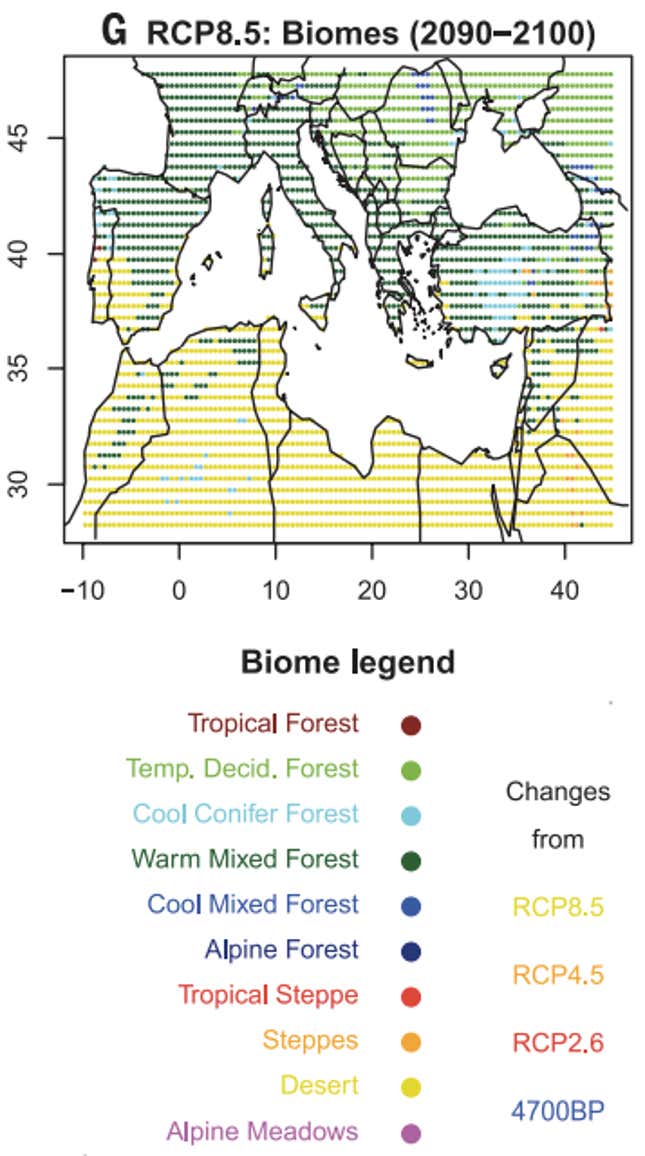Very few places on Earth beat the Mediterranean as a holiday destination in the summer. That may all change within a few decades. By 2100, if we don’t mitigate climate change, most of the coastal towns around the Mediterranean Sea will be too hot and nearby Lisbon will likely be in the middle of a desert.
The projections come from Joel Guiot of the French Research Institute for Development and Wolfgang Crame of the French National Centre for Scientific Research. They used climate models that can accurately reconstruct 10,000 years of ecosystem changes.
Their study published in Science shows that we can maintain the Mediterranean climate as it is today only if we cut carbon-dioxide emissions enough to keep global temperature levels at less than 1.5 °C above pre-industrial levels. Experts believe that this kind of aggressive action is highly unlikely, even though that’s what the countries that signed the 2015 Paris climate agreement are trying to achieve. Under any other scenario, there will be large changes to the Mediterranean haven.

If we can stop global temperatures from rising above 2 °C of pre-industrial levels, the march of the desert would be restricted to the northern parts of Morocco and Tunisia and the southern tip of Spain. Humans might adapt, but the weather will change the composition of plants and animals living in the area.
If we do nothing and continue to emit carbon dioxide at current expected levels, the desertification will happen in most of Portugal and in the southern parts of Spain (including Seville and Malaga), Italy (including Sicily and Sardinia), and Turkey. This kind of aggressive change in the climate will cause mass migration of not just animals but also humans. That spells massive economic problems.
The models used only include the impact of rising temperature on the climate of areas around the Mediterranean Sea. “If we had the possibility of including these human impacts [such as soil degradation through urbanization], it would be even worse than what we simulated,” Guiot told Nature.
